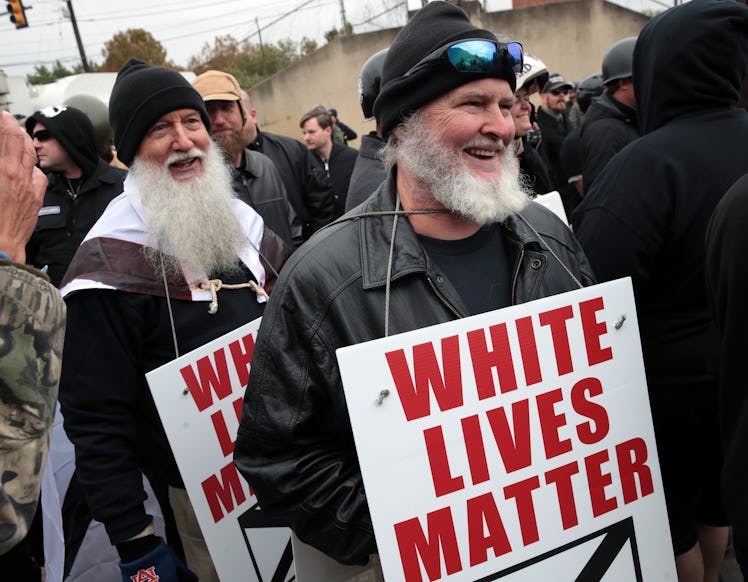
White Americans Feel Discriminated Against But Don't Actually Experience It, Report Says
A poll released on Oct. 24 by NPR, the Robert Wood Johnson Foundation, and the Harvard T.H. Chan School of Public Health called "Discrimination in America," showed that white Americans feel discriminated against without actually experiencing it. The findings revealed that all demographics perceived their demographic to be discriminated against. But there was a difference between perceiving and actually experiencing discrimination and racism.
"We didn’t realize so many people across these demographic groups felt so strongly that they had at been discriminated against," Dwayne Proctor of the Robert Wood Johnson Foundation tells Elite Daily. "These personal experiences are preventing African Americans from full participation in everything America has to offer: healthcare, public safety, education. We were not surprised by the results, but the problem is bigger than we thought."
The study sampled 3,453 adults in the U.S. from Jan. 26 to April 9, and 902 participants were white. 55 percent of white Americans believe discrimination exists against their people group, and 61 percent of white Americans believe that individual or institutional discrimination is to blame for the larger problem of discrimination against whites, according to the study. However, when asked for practical instances, only 19 percent of white Americans experienced personal discrimination when applying for a job, 13 percent while being considered for a promotion, and 11 percent while applying to a college. It's important to note that among the white Americans, the lower and moderate-income were more prone to feel discriminated against in those three categories.
On the other hand, 92 percent of African Americans participants believe their demographic is discriminated against, and more than 50 percent of those African Americans experienced personal racial discrimination when being considered for a promotion or being paid equally, when applying for jobs, and when interacting with police.
The findings of this survey show a striking discrepancy between perception and experience of discrimination in America. While every demographic feels, on a theoretic level, that they are being discriminated against, white Americans have less evidence to show of actual instances of discrimination. If white Americans haven't personally experienced discrimination, why do they think it exists against them?
The notion that white people are becoming a minority is not entirely false, either. In 1980, about half of U.S. counties were 98 percent white, and now less than 5 percent are, according to demographer William Frey's 2014 book, Diversity Explosion. Frey projected that Americans will become a minority by 2042, and that minorities such as Hispanics and Asians will double.
The fear from white Americans is not just in becoming a minority, but also in the dismantling of the working middle class. In 2015, Pew research determined that the American middle class was "losing its ground," because factories and unions, which provided generations of lower-income white families that never went to college jobs, were on the decline. Because of that, so has the middle-class.
While no one in particular is to blame for this, our president definitely preyed on this pre-existing belief. It's no secret that Donald Trump's campaign targeted the white working class voter and capitalized on the fear that white Americans were losing their majority status, and in turn, their power. That's not to say that Trump created this idea, but he took it and used it to his advantage. Trump weaponized these facts into white-fear politics. His tactics were leading white Americans, who supported his tactics, into solidifying the belief that they are being discriminated against.
While African-Americans are busy recounting actual experiences of racial discrimination, white Americans are perceiving discrimination as part of a fear of becoming a minority in America. The fear arguably stems from the mentality that minorities are "taking away" the privilege that was theirs to begin with. The difference is past and present. The difference is perception and experience.
"Perception, like many things, is in the eye of the beholder. But if people believe they have been discriminated against and live their life feeling so, then they are impacted," Proctor tells Elite Daily.
The most significant finding of this study may be that white Americans view the reality of discrimination and the fear of losing majority power as one in the same.